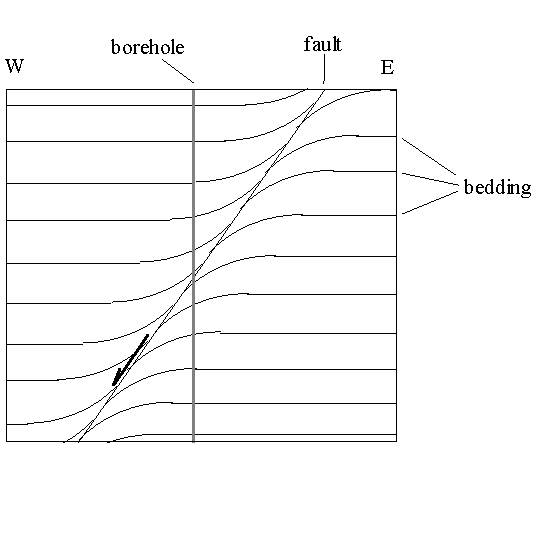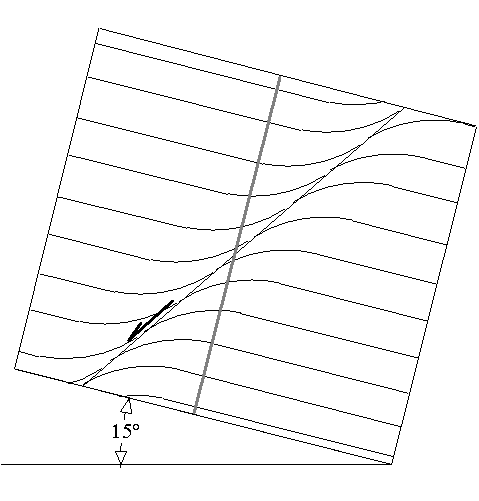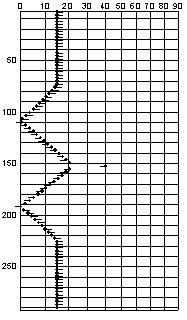
Below is an example of a simple normal fault with drag folds.

Following is a hypothetical dipmeter taken along the borehole of the fault above.

When we tilt these rocks (borehole and all) we get the cross section below.

Which results in the following dip pattern:

Note that structural tilt of only 15 degrees on a fault with more than 35 degrees of drag makes "textbook" drag fold pattern unrecognizable as such. Add in some scatter normally seen on dipmeters and the pattern would be difficult to interpret.
To remove structural tilt, we simply rotate the block back to its original position and the dips will revert to the "textbook" pattern. This is a relatively simple two-dimensional example. In three dimensions, the results can be surprising.
See the tutorial applets for visual demonstrations of the effects of tilt and scatter on dip data..
The figures above © 1996 by Charles R. Berg.